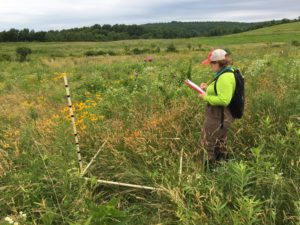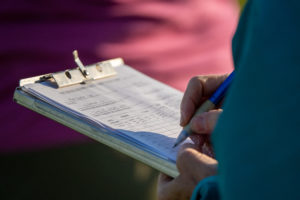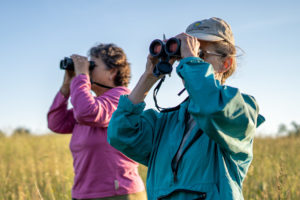Get Involved as a Landowner
Join Our Landowner Network!
Do you want to learn about plants, birds, pollinators and other wildlife that inhabit your property, achieve land management goals while fostering biodiversity? Participate in our grassland biodiversity surveys!
How it works. Step 1:
Contact Erin Shibley shibleye@si.edu to schedule a site visit. During a site visit, our researchers will discuss with you your property, goals, the landscape’s suitability for surveys, establish locations, and explain survey protocols. *Please note that surveys generally require 20-30+ acres of grassland habitat, with management delayed until July 1st on the property.
Step 2:
VWL staff and a team of Smithsonian scientists, graduate students, interns, and trained community volunteers survey a range of plant, pollinator, and bird species and collect soil samples. This data provides our team with a snapshot of the biodiversity on your property.
Step 3:
At the end of each season, we share a summary report of the species observed during the surveys. This is an exciting opportunity for you to have an inventory of the grassland plant, pollinator, and bird communities found on your property!
Step 4:
We use data from all participating properties to inform long-term studies on the relationships between land management and native biodiversity, supporting conservation and land management decisions to better serve Virginia’s grasslands and you!



SUPPORT VWL
VWL is supported 100% by grants and donations and our work is made possible by the generous contributions from our community.
The Smithsonian Institution is a 501(c)(3). All contributions are tax-deductible.
GET IN TOUCH
Virginia Working Landscapes
Smithsonian’s National Zoo and Conservation Biology Institute
1500 Remount Road, MRC 5537
Front Royal, Virginia 22630
SCBIVWL@si.edu
540-635-0035
